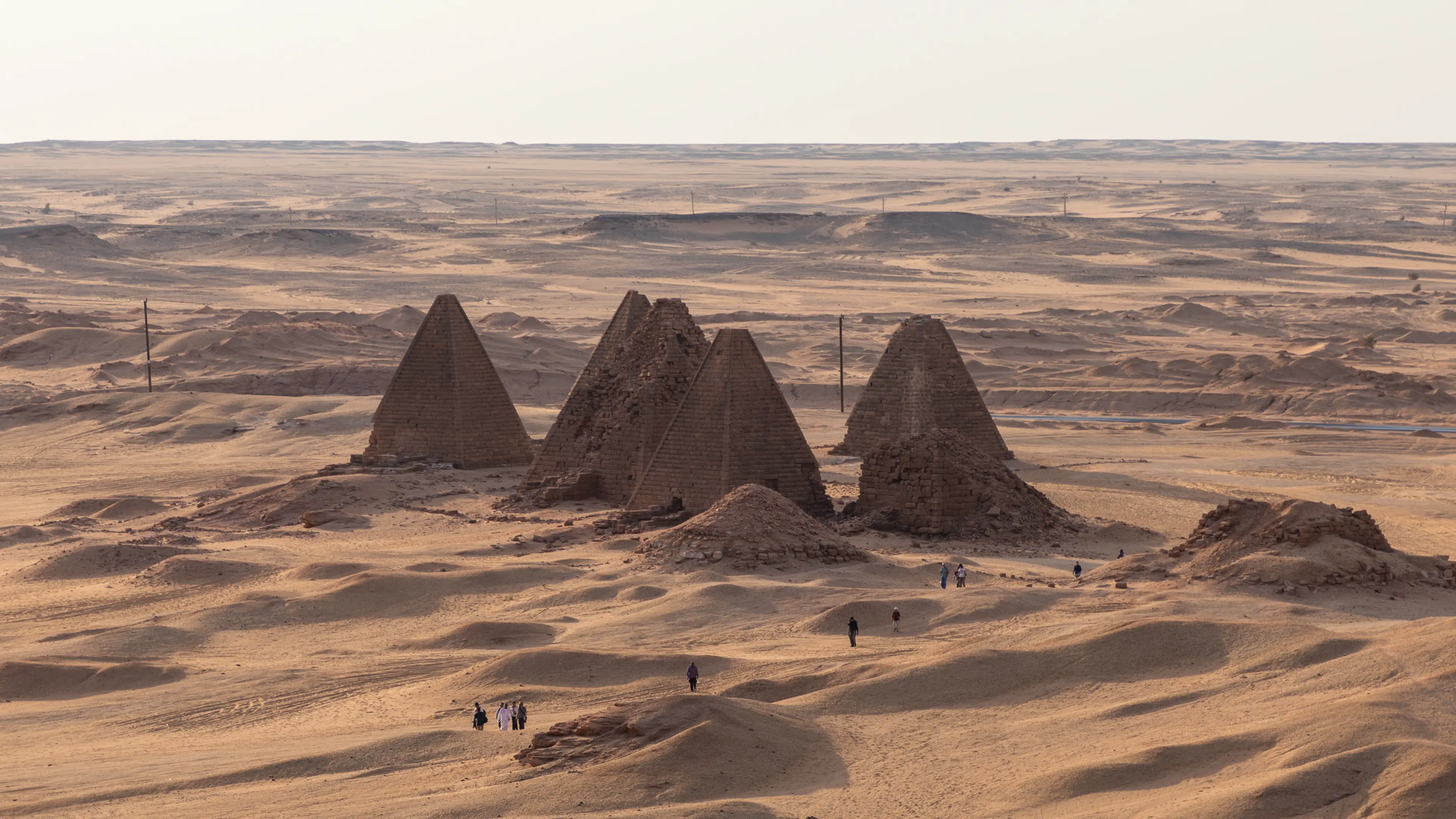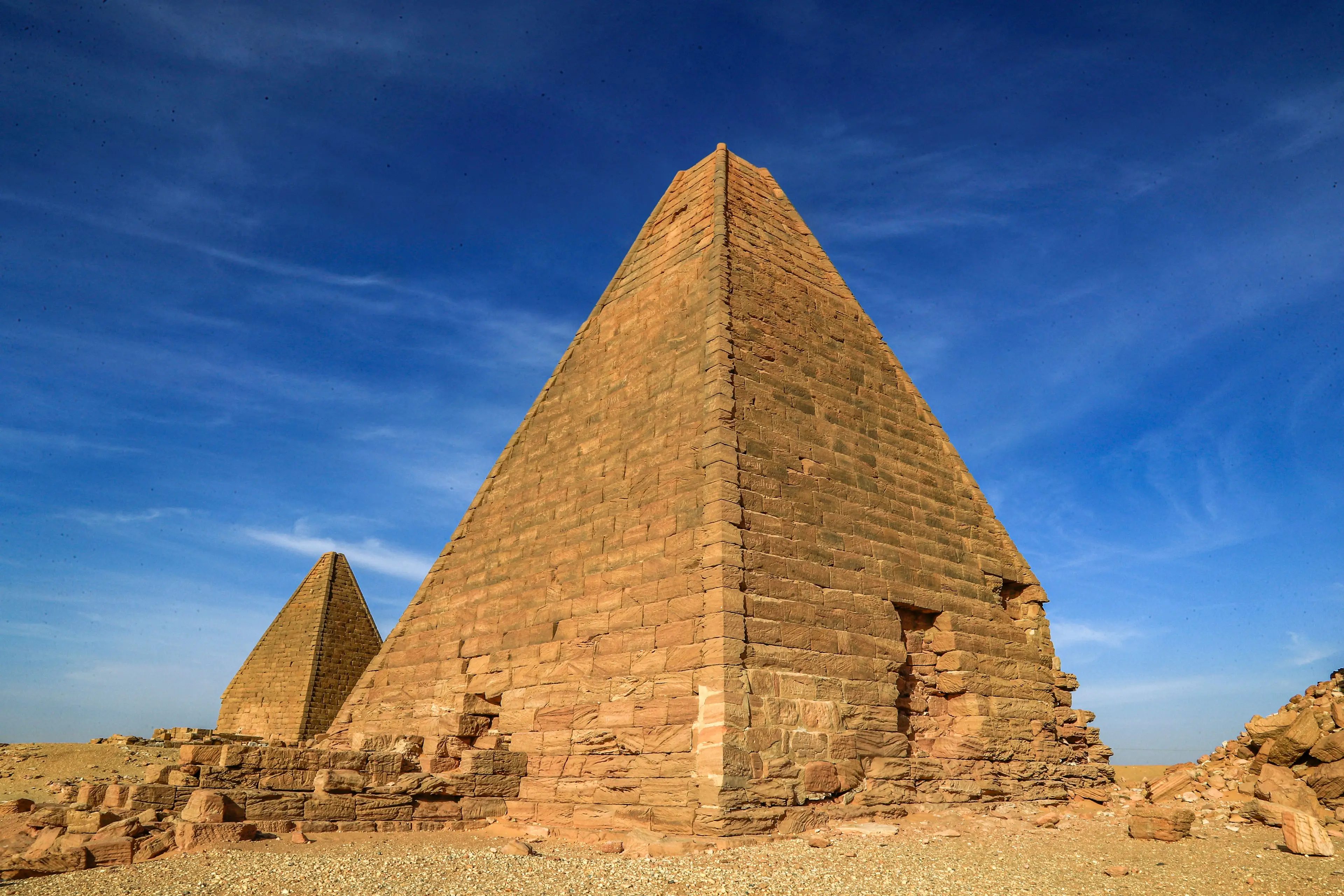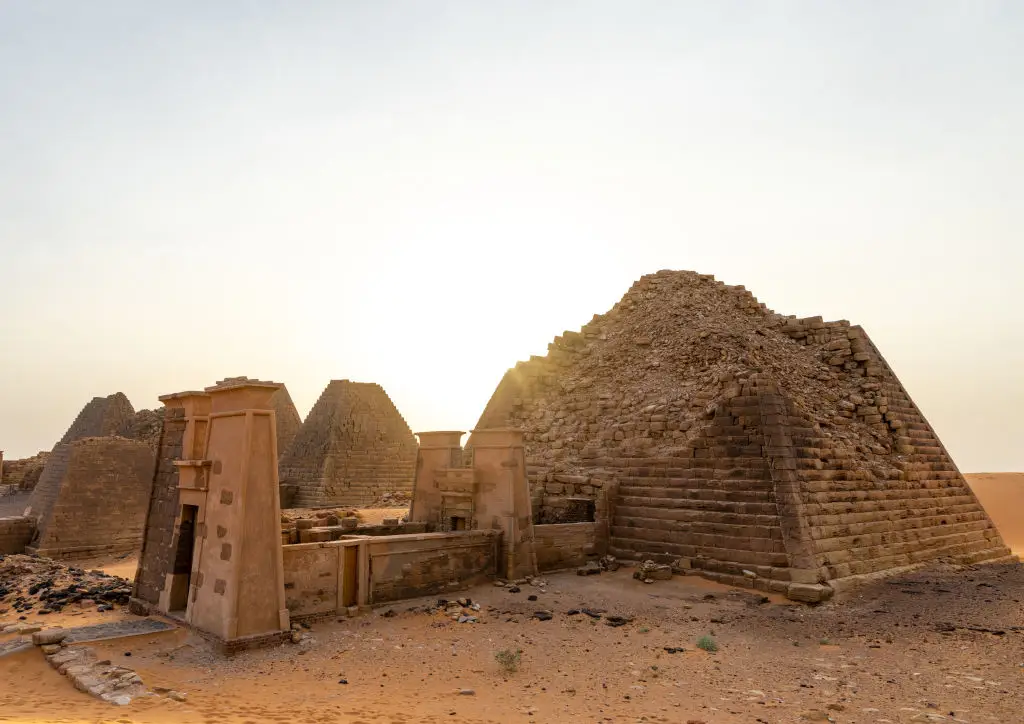
How we think about Ancient Egypt has been dramatically altered forever after a recent discovery by archaeologists.
And it is all to do with pyramids. Right now, more than 110 of the four sided structures from Ancient Egypt have been discovered by scientists studying the period of time that spans roughly 3,000 years.
Now, a long time historic assumption relating to Ancient Egypt's pyramids has been debunked by archaeologists after a discovery in the Tombos area of modern day Sudan, then known as Nubia.
South of modern day Egypt, the region of Africa was conquered by Pharaoh Thutmose I around 1,500 BC, with Ancient Egypt ruling the region for the next four centuries.
Advert
What have archaeologists discovered in Tombos pyramids?
Investigating a burial site at the ancient village of Tombos, archaeologists have re-written their own rule book when it comes to pyramids.
It has long been thought that pyramids were for those of the highest status in society, and for those with a lot of money to fund such a burial.
But Tombos has now suggested that lower class workers were also granted a spot in the tombs of pyramids in Ancient Egypt.
Sarah Schrader at Leiden University in the Netherlands, has been working hard at the site for the last 10 years.
Through her work, Schrader has discovered what people in the Tombos pyramids got up to in real life.
And from analysing their remains, there was a real mix of the type of people in there.
What the pyramid remains tell us

The skeletons in the pyramids were a mix of people who hadn't done much labour-intensive work in their lives. But at the same time, some remains showed signs of really busy work lives.
"Our findings suggest that pyramid tombs, once thought to be the final resting place of the most elite, may have also included low-status high-labor staff," the study on the find says, published in the Journal of Anthropological Archaeology.
Schrader said that 'at first we didn’t quite understand what the data meant', adding: "I think we have assumed for far too long that pyramids were just for the rich."
Some have suggested that the high-activity remains belonged to nobles who kept in good shape, but Schrader isn't convinced by this theory, saying archaeological evidence from across Ancient Egypt hints that those of elite status had quite strictly different activity patterns from non-elites.
Pyramid burials

By the time that Tombos went under the control of Ancient Egypt, it was at the height of the civilisation.
But during this height, royalty had moved away from being buried in pyramids as their favoured location once dead.
Instead, it was a shift to rock-cut tombs like what you can find if you visit the Valley of the Kings.
Topics: Ancient Egypt, History, Science, World News, Archaeology